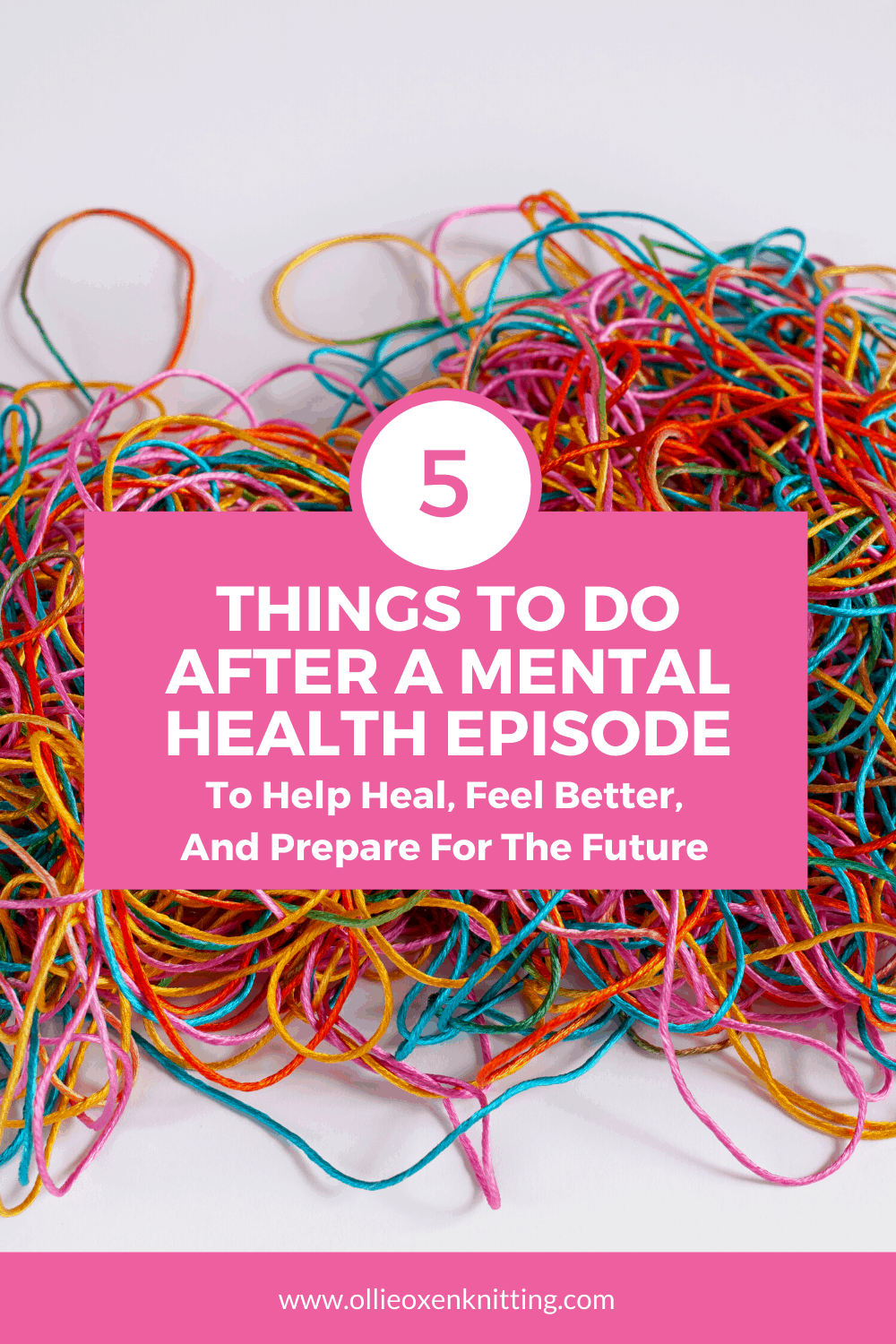Anyone that struggles with mental illness knows that you have your good days and you have your bad days. And sometimes, those bad days have flare ups that are acute. I like to call these moments “mental health episodes”. As frustrating and scary as these episodes can be, they can be a fantastic time for growth!
If you’re reading this, you’ve either recently had a mental health episode or you know someone who has. Either way, I want you to know that I’m proud of you for being here. If you’re reading this for yourself, it’s not always easy to admit that these things happen and I’m glad that you’re here. If you’re educating yourself on behalf of a loved one, I’m glad that you value them enough to spend time learning how best to help them.
This post is specifically aimed at what to do in the aftermath of a mental health episode. The goal of this article is to help you heal while also giving you more tools for next time. Let’s get started!
One: High Five Yourself For Surviving It
First off, hooray!! You did it! You made it to the other side.
After an episode, it can be so tempting to beat yourself up but don’t! This is the moment to give yourself a big hug and to be proud of yourself. Mental health episodes are hard on the body and mind; it’s ok to let yourself know that you just did something pretty amazing.
Here are some things to remember:
Two: Be Kind To Yourself
After an episode, I find that it’s super helpful to do an intentional act of self care. It doesn’t need to be big, difficult, expensive, or time consuming. If you have the resources to do something that you know really helps you, go for it! If not, here are a list of quick, easy, and free little acts of self care.
Self Care Ideas:
Whatever you decide to do, just make sure it’s something that helps you to feel a little more present and cared for. You’re worth it!
Three: Let People Know
Is there anyone that needs to know about your episode? Every situation is different but often times there is someone that needs/wants to know about your episode. It’s often important for doctors and therapists to know so that they can adjust your treatment as needed. But even with non-medical staff, sharing your episode can help to strengthen your support. (This is NOT always true so please know your audience!)
Some potential people to tell:
Keep in mind that you don’t necessarily need to tell all or any of these people. Your situation is unique so please use discretion when sharing your experience with other people.
When in doubt, ask yourself the following questions to help decide:
I think just about everyone has people they can tell and people they can’t. The trick is learning the difference. When in doubt, I tend to error on the side of caution but your situation is unique to you. You’ve got this!
Four: Journal About Your Episode
Journaling is a super duper powerful way to help you express and release any lingering thoughts and emotions. While your episode is still fresh in your mind, seize the moment and journal about what you experienced, how it made you feel, and anything else that comes to mind. You can just let the pen flow or you can use journaling prompts. If you’ve never journaled before or if you’re just feeling “stuck”, journaling prompts can help give you a jump start.
Personally, I find that it’s best if I journal that day or the next. If I’m using prompts, being the perfectionist that I am, I’ll try to fill out each prompt with at least a sentence or two. If I’m free writing, I try to journal until I reach that “ahhh” moment; for me it feels like I just had a really great stretch. That’s how I know that I’ve released all of the feelings from the episode.
I like to include a quick summary at the end of my journal entry or onto a post it note on the front page. This makes it easier to remember key points and for when I reread my entries later. If you see a therapist, this can also make it easier to get to the meat of a therapy session.
**Just an fyi that the time it takes to journal can really vary. Sometimes it takes me less than 10 minutes and occasionally I’ve needed to write for over an hour. There really is no perfect amount of time to write. What’s important is that you feel like you’ve reached your release. So don’t worry, you’re not a weirdo or anything if you take a long time or if you take no time at all. Regardless of how much time it takes for you to release, keep in mind that you are worth the time, resources, and energy it takes for you to heal. Take as much time as you need.
Five: Evaluate and Change
After you’ve written to your heart’s content, take a second to reread what you wrote. Pretend you’re back in high school English and see if you can find any overarching themes. When we watch movies, it’s often painfully obvious what the protagonist could do to improve their life. If you were an outsider looking in, what would you see? Those things are what we’re looking for. No judgements.
What did you learn about yourself? You can read more about how I evaluate episodes in my life here but the gist is that you want to look for a pattern that is within your control to change. Once you find some things that you can change, it’s time to… dun dun dun dunnnnn! Change it!
I know everyone likes to freak out when they hear the word “change” but don’t worry! Sometimes the smallest tweaks can have the biggest impacts. Right after an episode, I find that it’s best to make two to three tiny changes to improve things the next time around. When I say tiny changes, I mean teeny tiny; make them as small and as simple as possible.
And that’s it! That’s what I do after a mental health episode to encourage healing and to make future ones better.
What About You?
What do you do after a mental health episode to help yourself? Let us know in the comment section down below!











